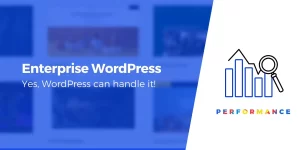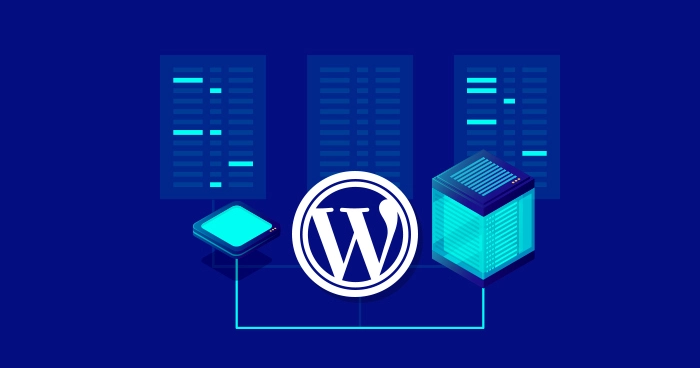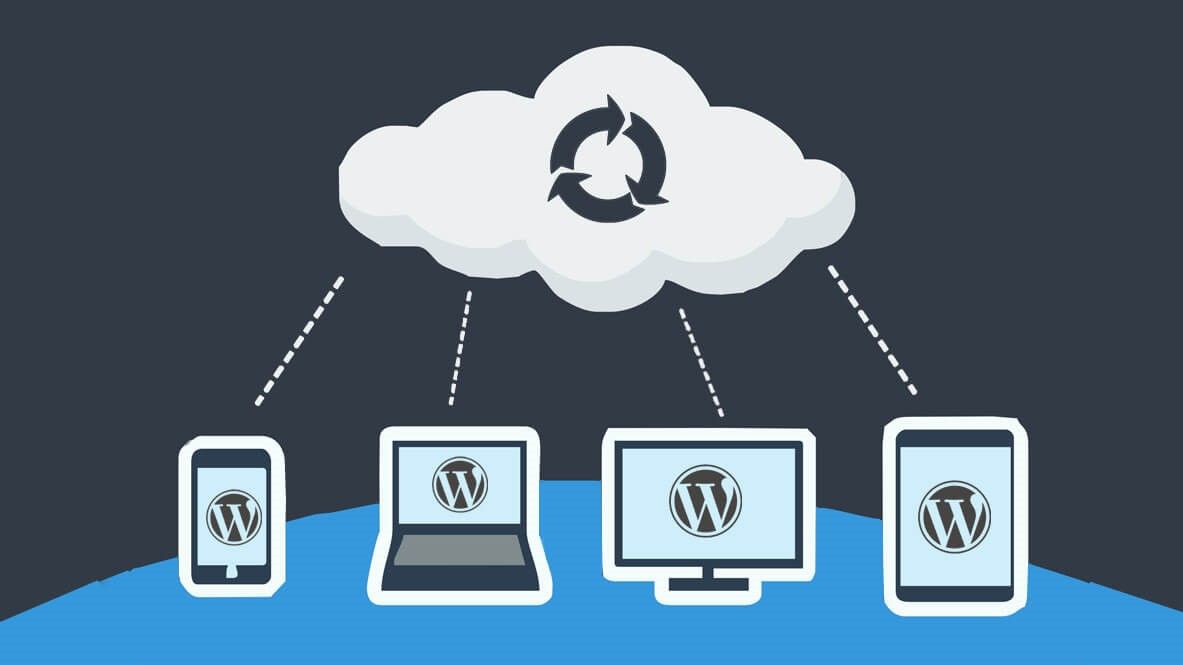Few organisations can claim the level of technological influence that WordPress does. WP has risen to become the most popular content management system since its inception in 2001 and expansion to include plug-ins in 2004. (CMS). While it’s ideal for blogs and static sites, many people assumed that because it’s open source, the CMS platform wouldn’t hold up as a powerful enterprise-level foundation. However, it turns out that the way it was designed is precisely why it works so well for enterprise WordPress site development.
1. WordPress Sites Are Inherently Flexible
Agility is essential, especially when it comes to implementing new marketing campaigns designed to influence customer behaviour. WordPress allows enterprises of all sizes to pivot, adapt, and grow as needed. They can capitalise on valuable trends, but the most important type of flexibility occurs on the back end when developing and deploying responsive and AMP sites.
2. Freedom to Build On-Demand
 WP is more than just a content management system for businesses. It is an integrated platform that does not place a company at the mercy of a single vendor relationship. Because it is open source, enterprise companies can execute business-driven design and development decisions on-demand, resulting in increased loyalty and growth.
WP is more than just a content management system for businesses. It is an integrated platform that does not place a company at the mercy of a single vendor relationship. Because it is open source, enterprise companies can execute business-driven design and development decisions on-demand, resulting in increased loyalty and growth.
3. WP Accessibility Standards Extends the Business’s Message Reach
WordPress, as an enterprise solution, is all about reaching out to everyone, including those who use assistive technology to navigate websites. That is why there is a dedicated guide on best practises and standards for accessibility that sites can use. With these standards in place, businesses can ensure that their message reaches the broadest possible audience, regardless of the device used.
4. Superb Blogging Platform and Best-in-Class Content Editing with Gutenberg
While the classic editor will always exist, Gutenberg allows enterprise content creators to effectively blend design and function. It’s a no-code solution that doesn’t require users to know HTML or CSS to create complex web content. Businesses can not only maintain the digital experience but also elevate it to a level that wins customers over in a matter of seconds by using drag-and-drop content blocks that can integrate almost any media. WordPress CMS users can add tailored tweaks to their message by using both blocks and custom code.
5. It Always Maintains Backward Compatibility
Many platforms like to rewrite major components of their framework, such as APIs, which can cause older versions to no longer work with newer versions, leaving entire platforms in disarray. WordPress is currently backward compatible in 99 percent of cases. This means that even if a user has a version that is three or five years old, it will still work. Furthermore, with the advent of the WordPress REST API, its CMS solution can function as one. The overall ecosystem is unaffected, as is the company’s ability to create timely content.

6. Enterprise WordPress Cache Optimization
Many issues with maintaining a faster load time or dealing with peak-time traffic lags are caused by poor caching or using far too many WordPress plugins. WordPress offers several levels of cache optimization best practises to help your enterprise site withstand these challenges. Object caching is one technique that stores query results so that they can be quickly retrieved from the database when needed in the future. WordPress Enterprise comes preconfigured with optimization features to support large-scale sites.
7. Reliable Scalability to Handle Sudden Growth
Enterprise companies may not have a robust database to handle a sudden growth spurt with some platforms. This ability to scale is critical to the success of any enterprise WordPress site and comes down to performance monitoring and hosting. Quality code is a solid foundation for any site, and WP has the tools to help sites monitor how their code is performing thanks to its built-in customizability. Then there’s the hosting architecture, which will determine how fast the site is. Not only is site performance proactively monitored at WP DevCare, but we also perform daily database optimization to ensure our client sites are error-free and ready for growth. Reliable scalability is all about being prepared for the unexpected.
8. Access to a Limitless Talent Pool of Experts
The WordPress community is constantly expanding. Admins have access to a limitless talent pool that can help them solve any problem and key them in on some cutting-edge tools and practises, from free and in-depth training to forums brimming with experts who’ve studied every inch of the platform. That’s the beauty of using a free and open-source platform for development.
9. Enterprise-Level Security Measures
 Malware and ransomware attacks are on the rise. Keeping plug-ins and themes up to date against potential exploitation is the best way to implement enterprise-level security measures. A professional should also review the site to ensure there are no vulnerabilities. WP DevCare performs daily off-site backups in addition to daily scans and malware removal to ensure our clients’ business continuity.
Malware and ransomware attacks are on the rise. Keeping plug-ins and themes up to date against potential exploitation is the best way to implement enterprise-level security measures. A professional should also review the site to ensure there are no vulnerabilities. WP DevCare performs daily off-site backups in addition to daily scans and malware removal to ensure our clients’ business continuity.
10. WordPress Is Built for Longevity
WordPress is the foundation for more than 40% of all sites and nearly two-thirds of all CMS-built sites, so it’s well-known and entrenched in the web design landscape. On all levels, it’s designed to be edited, and as more professionals become involved with the platform, WP becomes more future-proof. In fact, it may become as commonplace as a browser.
Use WordPress for Enterprise Website Solution
The most important takeaway from learning how to use a WP enterprise website solution for your site is that it is a simple, secure tool that allows for quick content turnaround. Companies aren’t tethered to cumbersome, vendor-specific content management systems where even minor changes necessitate a village of support and a mountain of costs. WP DevCare gives businesses a solid foundation for creating and protecting content while satisfying and delighting their customers. Begin today with one of our plans.





